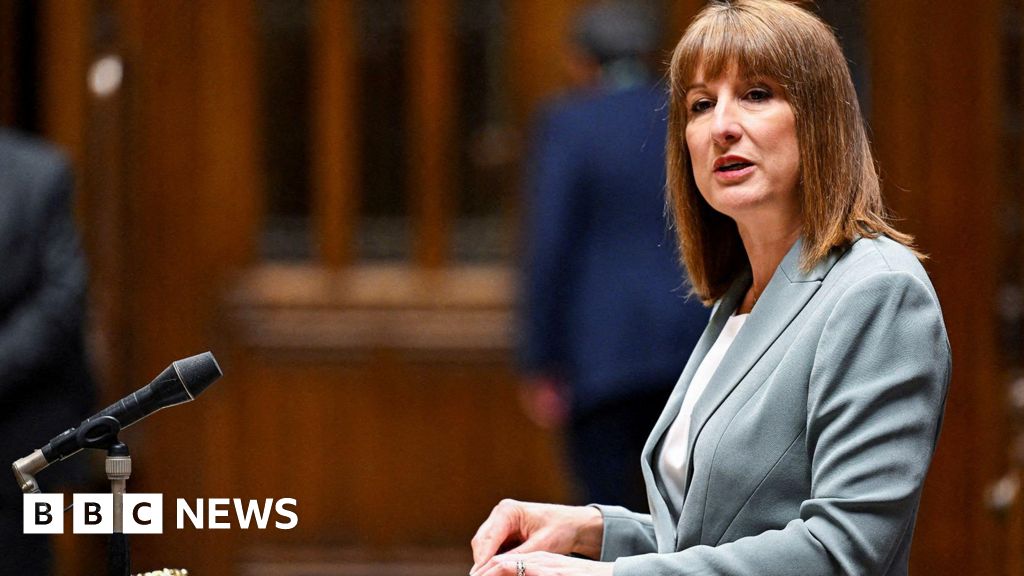Chancellor Rachel Reeves has decided against raising income tax rates at the Budget on 26 November.
The move, as first reported in the Financial Times, will mean that Labour will not have to break its election manifesto pledge not to raise “the basic, higher or additional rates of income tax.”
In recent weeks, Reeves had given strong indications she would increase the rates – a move that would have broken one of Labour’s election manifesto promises.
Instead of raising income tax rates, the chancellor could opt to freeze or lower income tax thresholds, the salary levels at which the various rates kick in. Other taxes could also be raised.
The chancellor’s apparent change of heart was driven by a new economic data, which was more positive than it could have been, particularly on recent tax receipts.
Government sources maintain that they are still having to make what they call “tough choices”.
They also stress that the move was not related to the turbulence in recent days relating to the prime minister’s future.
UK government borrowing costs rose in reaction to reports about a U-turn on income tax rates.
But yields eased through the morning after further reports that the financial hole facing the government was going to be less than experts have been predicting.
Reeves had not publicly confirmed she would raise income tax rates but had refused to rule it out.
Earlier this month, she also delivered a pre-Budget speech in which she emphasised the need to make “necessary choices” and warned that everyone would have to “contribute”.
If the chancellor has decided not to increase income tax rates, she will have to explore other ways to raise money, in order to meet her self-imposed rules on debt and borrowing while filling a bigger-than-expected hole in the public finances of around £20bn.
She could still opt to extend a freeze on income tax and National Insurance (NI) thresholds. The freeze was introduced in April 2023 and had been due to expire in 2028.
That would mean as salaries rise more people would be pulled above the income threshold at which they either start paying tax and NI or qualify for higher tax rates.
The Institute for Fiscal Studies estimates extending the freeze by two years could raise £8.3bn a year and would mean someone on the minimum wage would be liable to pay income tax if they worked just 18 hours a week.
Another option would be to lower the thresholds which would raise more money than simply extending the freeze.
There have been reports the Treasury is also considering other measures including a new tax on electric vehicles and higher taxes on gambling companies.
In its 2024 general election manifesto, Labour promised that it would “not increase taxes on working people, which is why we will not increase National Insurance, the basic, higher or additional rates of income tax, or VAT”.
Breaking the manifesto promise would mean difficult questions for Labour ministers and MPs ahead of elections in Scotland, Wales and England.
At the start of the month, the party’s newly-elected deputy leader Lucy Powell, said: “It is really important we stand by the promises that we were elected on and that we do what we said we would do.”
Speaking to BBC Breakfast, Culture Secretary Lisa Nandy said “no decisions were made or set in stone” until Reeves delivered the Budget in the House of Commons.
“What I can tell you is as somebody who sits around that cabinet table, who has discussions with Rachel and has known her for a long time, is that she won’t play fast and loose with people’s money.
“She does take her promises seriously, and she will do everything that she can to make sure that those choices are the fairest possible choices.”
Conservative leader Kemi Badenoch said: “One retreat doesn’t fix a Budget built on broken promises.
“Reeves must guarantee no new taxes on work, businesses, homes or pensions – and she should go further by abolishing stamp duty.”
Liberal Democrat Treasury spokeswoman Daisy Cooper said: “If true, this 11th hour screeching U-turn might just spare struggling families from yet another punch in the stomach Budget.”
A Treasury spokesperson said: “We do not comment on speculation around changes to tax outside of fiscal events.”
They added: “The chancellor will deliver a Budget that takes the fair choices to build strong foundations to secure Britain’s future.”
to keep up with the inner workings of Westminster and beyond.
Source: www.bbc.com
